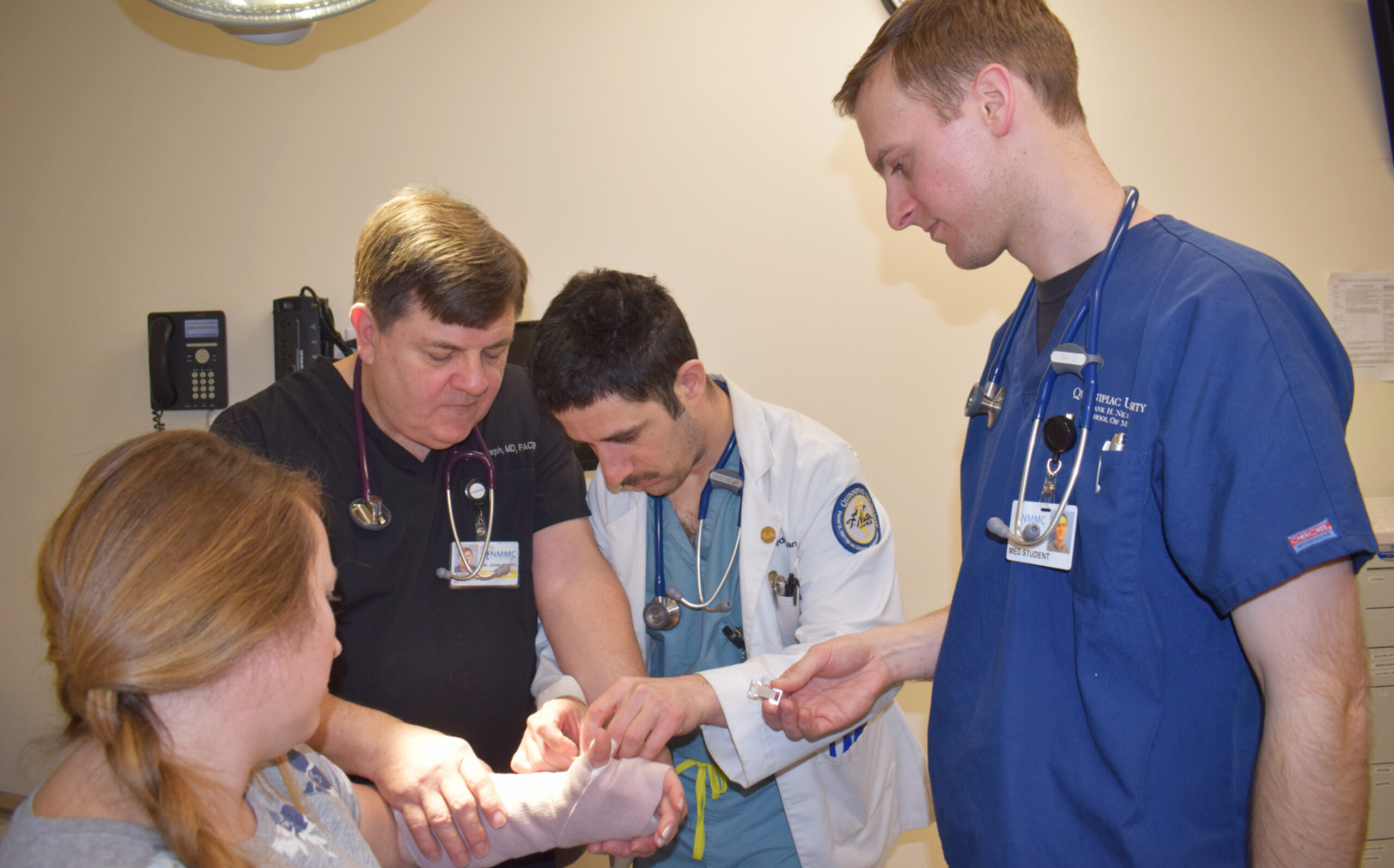
FORT KENT, Maine — People who live in rural America face serious health disparities because of an acute shortage of physicians and the resulting lack of access to care. This spring, Quinnipiac University’s Frank H. Netter, MD School of Medicine will partner with Northern Maine Medical Center in response to that situation.
The school will launch its Longitudinal Integrated Clerkship (LIC), a full-immersion, rural clerkship for third-year medical students. The first group of four students will spend nine months at NMMC.
According to Dr. Traci Marquis, director of the longitudinal clerkship and rural medicine electives at Quinnipiac, students in the LIC will study six disciplines simultaneously: primary care/family medicine; inpatient, internal medicine; psychiatry; pediatrics and OB-GYN; and surgery, all at NMMC; and pediatrics and OB-GYN at Northern Light AR Gould Hospital in Presque Isle.
“NMMC is an independent hospital with five-star quality metrics and a staff of family physicians and generalists who are skilled in multiple areas,” said Marquis, noting that NMMC was named among the nation’s top 20 rural hospitals for the third year in 2018, and has achieved has achieved recognition from the Leapfrog Group for high performance.
“During this immersion program, students will be exposed to the entire scope of a rural physician’s practice. They will follow patients and families over the course of nine months and form close relationships with faculty and physicians. We hope this experience will encourage these students to consider careers in rural medicine.”
Dr. Michael Sullivan, chief medical officer at NMMC, who has been appointed to the Frank H. Netter, MD School of Medicine faculty, will serve as LLC site director. Grants from The Davis Family Foundation and The Margaret Burnham Charitable Trust went toward student scholarships.
The first four program participants were chosen through a competitive application process and will live in free housing next to the hospital. Over the medical school’s academic year, Quinnipiac plans to send approximately 12 fourth-year students for four-week primary care or rural emergency electives.
The first class includes the following.
Leia Fecteau of Renton, Washington, whose goal is to work with low-income or underserved patients, and, eventually, work for Doctors Without Borders. She is looking for a challenging, hands-on, personalized experience to become a better doctor.
Zoey Frolking, who is originally from Durham, NH and attended Mount Allison University in New Brunswick, Canada–near Fort Kent. She already hopes to work in rural family medicine.
Jess Malhotra, who was raised in Stamford and has been interested in rural medicine and wants to see if it’s a good fit.
David Piscitelli of Wallingford, who is looking for an opportunity to leave his comfort zone and enjoy “the outdoors, nature and the friendliness, kindness, and openness you get in a rural town.”
“This project is a labor of love,” Marquis said. “Fort Kent is a very welcoming and diverse community, and NMMC is one of the nation’s outstanding rural hospitals. We are excited that our students will have the opportunity to practice everything they’ve studied, and we hope some of them will go on to work in rural settings.”
The National Rural Health Association reports that the ratio of patients to primary care physicians in rural areas is only 39.8 physicians per 100,000 people, compared to 53.3 physicians per 100,000 in urban areas. The Centers for Disease Control and Prevention (CDC) state rural residents are more likely to die from heart disease, cancer, unintentional injury, chronic lower respiratory disease and stroke than their urban counterparts.
In January, 2019, Senator Susan Collins (R-ME), who grew up in Aroostook County and has spoken about its residents’ difficulty in accessing medical care, and Jon Tester (D-MT), introduced the Training the Next Generation of Primary Care Doctors Act, a bi-partisan bill that would bolster the successful Teaching Health Centers Graduate Medical Education Program, which trains physicians in underserved areas. The new legislation would authorize nearly $650 million over five years to train medical residents in low-income, underserved rural and urban neighborhoods.
The Netter School of Medicine, which opened in 2013, is named for Dr. Frank H. Netter, a world-renowned medical illustrator whose drawings and atlases have educated medical students for decades. The school develops physicians to become integral members of patient-centered health care teams.




